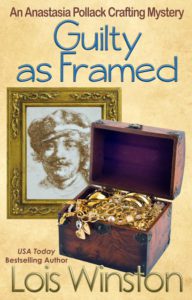
Do you have a grammar pet peeve? I do, thanks to Peggy Riley Hughes, my seventh and eighth-grade English teacher. Because of Mrs. Hughes, I cringe whenever I hear or read poor grammar. If the world had more Peggys, I’d cringe a lot less.
To boldly go where no man has gone before. Remember that opening from Star Trek? Cringe-worthy! Gene Rodenberry obviously didn’t have Peggy Riley Hughes as an English teacher. If he had, he never would have split his infinitive.
Sadly, because there are so few English teachers like Peggy Riley Hughes, the Oxford English Dictionary did the unthinkable years ago—they declared it okay to split infinitives. Horrors! What would Peggy say?
Writers have license to take liberties with their writing. When I write dialogue, I don’t necessarily write in perfectly formed sentences because people don’t always speak in perfectly formed sentences. We often use sentence fragments. Our characters rarely speak using perfect grammar. That’s okay. We want them to sound realistic, not stilted. Style will also often dictate that sentence fragments be used in narrative.
There are, however, grammar rules that should never be broken.
Anyone who wants to be a writer, needs a firm grasp of the English language. Why is this important? Won’t the editor correct whatever needs correcting? Once upon a time that may have been true. However, these days editors don’t have the luxury of time to mollycoddle an author with a great story idea but a poor command of the English language. There are plenty of other well-written manuscripts at the editor’s fingertips.
The grammar error that makes me cringe the most, is the misuse of pronouns. For some reason, many people think substituting the nominative for the objective sounds more intelligent, no matter that it’s wrong. I see very well-educated people making this mistake all the time in their speaking and their writing. It makes me wonder if grammar is even being taught in schools these days.
If English class is a distant memory, here’s a nominative/objective refresher:
Nominative Pronouns: I, you, he, she, it, we, they, and who.
Objective Pronouns: me, you, him, her, it, us, them, and whom.
The nominative is always used as the subject of the sentence. The objective is always used in the predicate of a sentence and pairing with a direct object.
Think about it: You wouldn’t say, “John helped I” or “She gave the papers to I,” so why would you say, “John helped Suzie and I” or “She gave the papers to John and I”? It makes no sense, right?
Please consider your pronouns in your speaking and writing. I fear that whenever someone misuses them, Peggy Riley Hughes turns over in her grave. Help give the poor woman a much-deserved rest!

An Anastasia Pollack Crafting Mystery, Book 11
When an elderly man shows up at the home of reluctant amateur sleuth Anastasia Pollack, she’s drawn into the unsolved mystery of the greatest art heist in history.
Boston mob boss Cormac Murphy has recently been released from prison. He doesn’t believe Anastasia’s assertion that the man he’s looking for doesn’t live at her address and attempts to muscle his way into her home. His efforts are thwarted by Anastasia’s fiancé Zack Barnes.
A week later, a stolen SUV containing a dead body appears in Anastasia’s driveway. Anastasia believes Murphy is sending her a message. It’s only the first in a series of alarming incidents, including a mugging, a break-in, another murder, and the discovery of a cache of jewelry and an etching from the largest museum burglary in history.
But will Anastasia solve the mystery behind these shocking events before she falls victim to a couple of desperate thugs who will stop at nothing to get what they want?
Buy Links for paperback, hardcover, and various e-tailers can be found here.
Bio: USA Today and Amazon bestselling and award-winning author Lois Winston writes mystery, romance, romantic suspense, chick lit, women’s fiction, children’s chapter books, and nonfiction under her own name and her Emma Carlyle pen name. Kirkus Reviews dubbed her critically acclaimed Anastasia Pollack Crafting Mystery series, “North Jersey’s more mature answer to Stephanie Plum.” In addition, Lois is a former literary agent and an award-winning craft and needlework designer who often draws much of her source material for both her characters and plots from her experiences in the crafts industry. Learn more about Lois and her books at her website www.loiswinston.com where you can also sign up for her newsletter and follow her on various social media sites.
The post Grammar Crimes appeared first on Debra H. Goldstein.